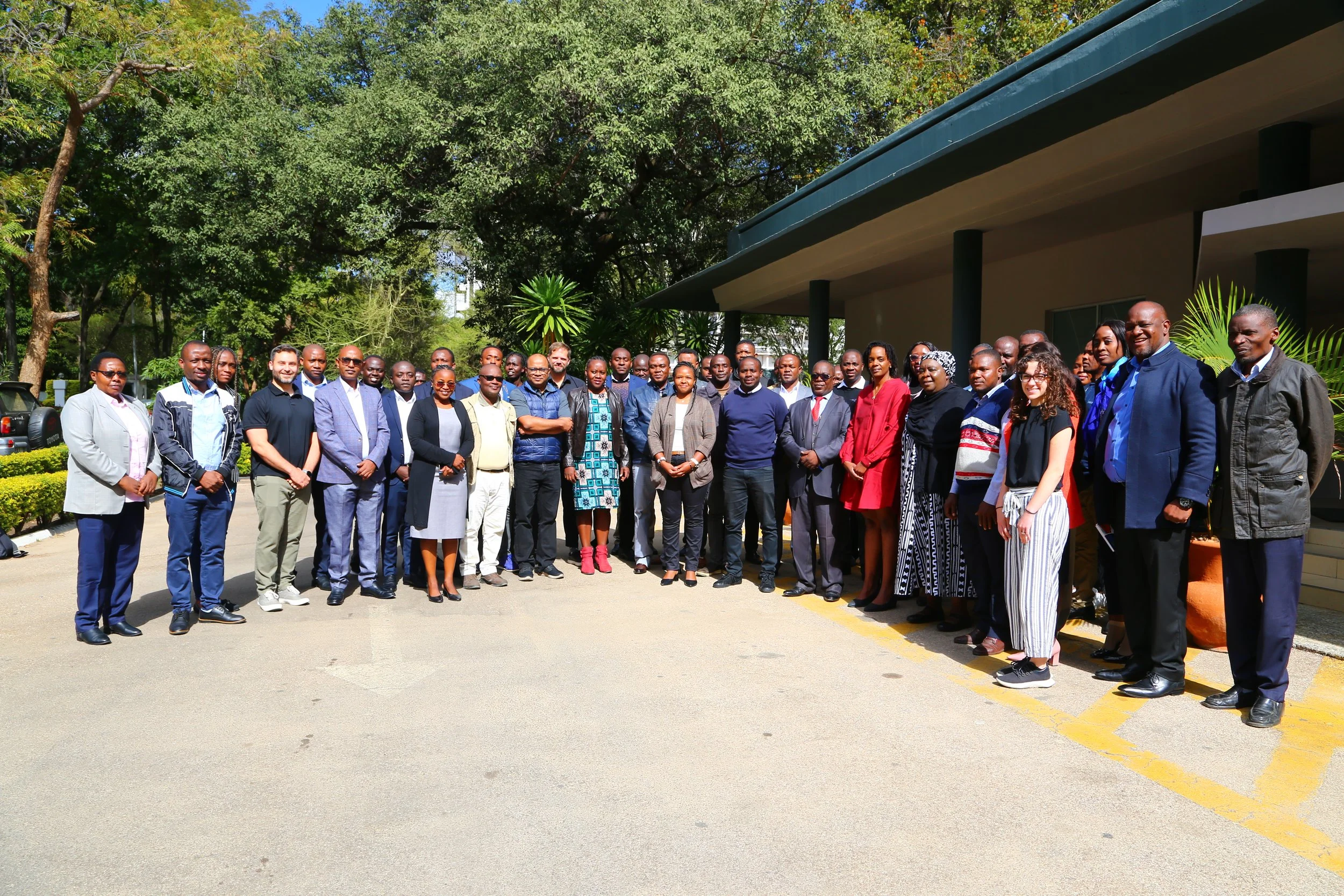University of Maryland and NASA Harvest Host International Training on Advanced Earth Observation Tools for Agriculture Monitoring in Zambia
The University of Maryland and NASA Harvest, in collaboration with partner organizations the Group on Earth Observations Global Agricultural Monitoring (GEOGLAM), the IGAD Climate Prediction and Applications Centre (ICPAC), and the International Center for Tropical Agriculture (CIAT), recently concluded a comprehensive four-day training session aimed at enhancing agricultural monitoring capabilities among analysts from national ministries in agriculture and meteorology. The training, held from June 11-14 2024, brought together 50 participants from five participating countries with the ultimate goal of familiarizing analysts with the latest advancements in Earth observation-based tools and techniques, specifically the Global Agriculture Monitoring System (GLAM) and the Early Warning Explorer (EWX), as well as equipping the Zambia Ministry of Green Economy and Environment to produce their own crop condition report periodically.
The UMD NASA Harvest program team was led by GEOG Assistant Professor Catherine Nakalembe, with support from UMD senior faculty specialist John Keniston, faculty specialist Diana Botchway Frimpong, and undergraduate research assistant Alana Ginsburg.
Training participants, ministry of agriculture representatives from Zambia and UMD NASA Harvest program team members.
Officials from Ethiopia, Kenya, Rwanda, Tanzania, and Uganda (countries with operational crop monitor bulletins) shared progress updates on the establishment and dissemination of their products, as each country faced some overlapping challenges that they could collaboratively find solutions for. This effort sought to address the critical gap in available rapid assessment data and reporting on crop conditions for multi-level food security decision making, and to complement efforts by ministries of agriculture and other institutions collecting relevant data. The training covered a diverse range of topics essential for modern agriculture monitoring.
Key areas of focus included an introduction to Earth Observation for agriculture monitoring, practical sessions on setting up and using the Crop Monitor system, techniques for analyzing crop conditions using various data sources, and methodologies for developing comprehensive crop bulletins and reports. Additionally, the training emphasized the importance of cross-country and cross-agency collaboration to enhance agricultural monitoring and early warning efforts.
Crop Monitoring Training held in Zambia. Top left: Session led by Dr. Catherine Nakalembe from UMD. Top right: Alana Ginsburg guiding participants, and addressing challenges faced by participants. Bottom left: Diana Frimpong and John Keniston addressing participant challenges. Bottom right: Dr. Nakalembe guiding participants from Zambia on the use of the various platforms introduced.
Notable attendees included a representative from the Office of the Director of Agriculture in Zambia and representatives from the Ministry of Agriculture, Zambia Meteorological Department, and partner organizations. Their presence underscored the importance of the training and its potential impact on regional agricultural monitoring.
During the plenary and feedback sessions, participants expressed that they had acquired valuable knowledge in crop monitoring, particularly in using the advanced tools and applications introduced during the training, which will help develop tailored agro-advisories to the general public. They also highlighted that these tools would significantly enhance the production of more robust crop bulletins moving forward.
Crop Monitoring Training held in Zambia. Top left: Stephen Sande from CIAT addressing participant challenges. Top right: Session led by Diana Frimpong from UMD. Bottom left: Session led by John Keniston from UMD. Bottom right: Session led by Alana Ginsburg from UMD.
In his remarks, the Director of Agriculture stated, "The ministry wholeheartedly accepts the systems introduced and promises to utilize them moving forward for more robust agriculture monitoring."
This training marks a significant step forward in equipping in-country analysts with the skills and tools necessary for effective agricultural monitoring and early warning, ultimately contributing to improved food security and agricultural resilience across the participating countries. On ending, Dr. Nakalembe presented about 5 GoPro cameras and helmets for street-level field data collection to the Zambia Ministry of Agriculture.



